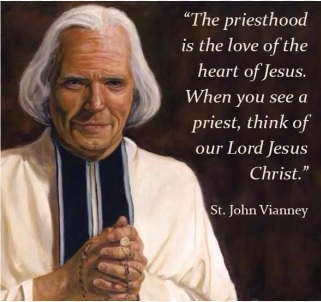Holy Orders
Holy Orders is a sacrament of service through which the mission which Christ entrusted to his apostles continues to be carried out by the Church. Through a special gift of the Holy Spirit, this sacrament enables the ordained to exercise a sacred power in the name and authority of Christ to serve the People of God.
At the deepest level priesthood is about union with Jesus Christ: the goal is to become more and more like him. Being a priest is more than a job – it’s a way of life, requiring strong personal and professional commitment that is reflected in all that you do, all that you are. The opportunity to serve God and bring hope, joy and healing into the lives of many people brings with it a deep happiness and a sense of peace.
Sacrament of Holy Orders
“As a way of showing forth the Church’s holiness, it is to be recognized that the consecrated life, which mirrors Christ’s own way of life, has an objective superiority. Precisely for this reason, it is an especially rich manifestation of Gospel values and a more complete expression of the Church’s purpose, which is the sanctification of humanity. The consecrated life proclaims and in a certain way anticipates the future age, when the fullness of the Kingdom of Heaven, already present in its first fruits and in mystery,[62] will be achieved and when the children of the resurrection will take neither wife nor husband, but will be like the angels of God (cf. Mt. 22:30)”
Pope John Paul II Vita Consecrata, no. 32
In Persona Christi
In the ecclesial service of the ordained minister, it is Christ himself who is present to his church as Head of his Body, Shepherd of his flock, high priest of the redemptive sacrifice, Teacher of Truth. This is what the Church means by saying that a priest, by virtue of the sacrament of Holy Orders, acts in persona Christi Capitis.
It is the same priest, Christ Jesus, whose sacred person his minister truly represents. Now the minister, by reason of the sacerdotal consecration which he has received, is truly made like to the high priest and possesses the authority to act in the power and place of the person of Christ himself.
Christ is the source of all priesthood: the priest of the old law was a figure of Christ, and the priest of the new law acts in the person of Christ (St. Thomas Aquinas quoted in CCC 1548)
. . . “in the name of the whole Church”
The ministerial priesthood has the task not only of representing Christ—Head of the Church—before the assembly of the faithful, but also of acting in the name of the whole Church when presenting to God the prayer of the Church, and above all when offering the Eucharistic sacrifice (CCC1552).
Three Degrees of the Sacrament of Holy Orders
Since the beginning, the ordained ministry has been conferred and exercised in three degrees: that of bishops, that of presbyters, and that of deacons. The ministries conferred by ordination are irreplaceable for the organic structure of the Church: without the bishop, presbyters, and deacons, one cannot speak of the Church (CCC1593).
Deacons
Deacons are minister ordained for tasks of service of the Church; they do not receive the ministerial priesthood, but ordination confers on them important functions in the ministry of the word, divine worship, pastoral governance, and the service of charity, tasks which they must carry out under the pastoral authority of their bishop (CCC 1596).
Deacons share in Christ’s mission and grace in a special way. The sacrament of Holy Orders marks them with an imprint which cannot be removed and which configures them to Chris, who made himself the “deacon” or servant of all. Among other tasks, it is the task of deacons to assist the bishop and priests in the celebration of the divine mysteries, above all the Eucharist, in the distribution of Holy Communion, in assisting at and blessing marriages, in the proclamation of the Gospel and preaching, in presiding over funerals, and in dedicating themselves to the various ministries of charity (CCC 1570).
Since the Second Vatican Council the Latin Church [Roman Church] has restored the diaconate “as a proper and permanent rank of the hierarchy,” while the Churches of the East had always maintained it. This permanent diaconate, which can be conferred on married men, constitutes an important enrichment for the Church’s mission. Indeed it is appropriate and useful in its liturgical and pastoral life or whether in its social and charitable works, should “be strengthened by the imposition of hands which has come down from the apostles. They would be more closely bound to the altar and their ministry would be made more fruitful through the sacramental grace of the diaconate (CCC 1571).
Priests
Priests are united with the bishops in sacerdotal dignity and at the same time depend on them in the exercise of their pastoral functions; they are called to be the bishops’ prudent co-workers. they form around their bishop the prebyterium which bears responsibility with him for the particular Church. They receive from the bishop the charge of a parish community or a determinate ecclesial office. (CCC 1595)
Through the sacrament of Holy Orders priests share in the universal dimensions of the mission that Christ entrusted to the apostles. The spiritual gift they have received in ordination prepares them, not for a limited and restricted mission, “but for the fullest, in fact the universal mission of salvation’ to the end of the earth,’” prepared in spirit to preach the Gospel everywhere (CCC1565).
“It is in the Eucharistic cult or in the Eucharistic assembly of the faithful (synaxis) that they exercise in a supreme degree their sacred office; there, acting in the person of Christ and proclaiming his mystery, they untie the votive offerings of the faithful to the sacrifice of Christ their head, and in the sacrifice of the Mass they make present again and apply, until the coming of the Lord, the unique sacrifice of the New Testament, that namely of Christ offering himself once for all a spotless victim to the Father.” From this unique sacrifice their whole priestly ministry draws its strength (CCC1566).
Bishops
The bishop received the fullness of the sacrament of Holy Orders, which integrates him into the Episcopal college and make him the visible head of the particular Church entrusted to him. As successors of the apostles and members of the college, the bishops share in the apostolic responsibility and mission of the whole Church under the authority of the Pope, successor of St. Peter (CCC1594).
“Episcopal consecration confers, together with the office of sanctifying, also the offices of teaching and ruling…In fact…by the imposition of hands and through he words of consecration, the grace of the Holy Spirit is given, and a cared character is impressed in such wise that bishops, in an eminent and visible manner, take the place of Christ himself, teacher, shepherd, and priest, and act as his representative (in Eius persona agant).” “By virtue, therefore, of the Holy Spirit who has been given to them, bishops have been constituted true and authentic teachers of the faith and have been made pontiffs and pastors (CCC 1558).
As Christ’s vicar, each bishop has the pastoral care of the particular Church entrusted to him, but a the same time he bears collegially with all his brothers in the episcopacy the solicitude for all the Churches: “Though each bishop is the lawful pastor only of the portion of the flock entrusted to his care, as a legitimate successor of the apostles he is, by divine institution and precept, responsible with the other bishops for the apostolic mission of the Church (CCC 1560).
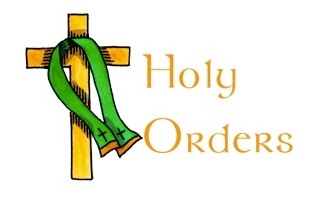
MORE INFORMATION
If you would like more information or have questions regarding your call to the priesthood or diaconate our Priest and Deacon would be thrilled to help you and/or answer any questions. Please feel free to contact them:
Diocese of Toledo - Vocations
Please follow this link to the Vocations section of the Diocese of Toledo Website.
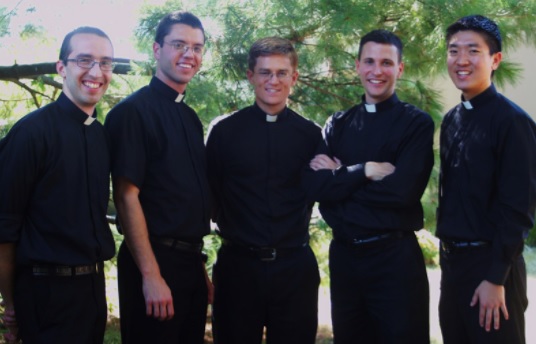

- Pray for the priests who have ministered to you throughout your life, both living and dead.
- Keep our parish priest and deacon in your prayers throughout the week.
- Encourage your children, grandchildren, or other young people to consider a vocation as a priest or religious brother or sister.
- Pray a rosary for more young men and women in our diocese to respond to God’s call.
O Jesus, I pray for your faithful and fervent priests; for your unfaithful and tepid priests; for your priests laboring at home or abroad in distant mission fields; for your tempted priests; for your lonely and desolate priests; for your young priests; for your dying priests; for the souls of your priests in purgatory.
But above all, I recommend to you the priests dearest to me: the priest who baptized me; the priests who absolved me from my sins; the priests at whose Masses I assisted and who gave me your Body and Blood in Holy Communion; the priests who taught and instructed me; all the priests to whom I am indebted in any other way especially the priests and deacons who have served at St. Peter’s and our current pastor and deacon Father Stephen Stanbery and Deacon Larry Zachrich, (Add names of other priests you would like to pray for).
O Jesus, keep them all close to your heart, and bless them abundantly in time and in eternity. Amen.
Gracious and loving God, help the men and women of our parish to hear the call to serve in the Diocese of Toledo. Our needs are great and our people thirst for your presence.
Open the hearts of many, raise up faithful servants of the Gospel, dedicated, holy priests, sisters, brothers and deacons, who will spend themselves for your people and their needs.
Bless those who are serving now with courage and perseverance. Grant that many will be inspired by their example and faith. We ask this through Christ our Lord. Amen.
Lord, my God and my loving Father, you have made me to know you, to love you, to serve you, and thereby to find and to fulfill my deepest longings. I know that you are in all things, and that every path can lead me to you.
But of them all, there is one especially by which you want me to come to you. Since I will do what you want of me, I pray, send your Holy Spirit into me: into my mind, to show me what you want of me; into my heart, to give me the determination to do it, and to do it will all my love, and with all my mind, and with all of my strength right to the end. Jesus, I trust in you. Amen.
Here are some vocation meditation prayers for the Sorrowful, Joyful and Glorious Mysteries.
JOYFUL MYSTERIES
The Annunciation –The Angel Gabriel announces to Mary, a virgin, that she will become the Mother of God, Word made Flesh. For all centuries to come, Jesus will become flesh in the Holy Eucharist to nourish us in a most intimate union with Him.
We pray for all future priests now being formed in the wombs of their mothers, that they may be safe from physical and spiritual harm, and come to Life as God intends. We pray for all future generations of priests and religious. We pray also that they may treasure the gift of celibacy.
The Visitation –Mary visits her cousin Elizabeth, who recognizes Mary as the living tabernacle of their Divine Lord.
We pray especially for priests and religious who bring Holy Communion to the sick, the shut-ins, and Viaticum to the dying.
The Nativity of Jesus –Jesus is born in Bethlehem. The angels announce His birth; kings and shepherds come to adore Him.
We pray especially for those who will be ordained, that they may remain faithful all their lives to the privilege of being “other Christs” among us.
The Presentation in the Temple –Mary and Joseph, in obedience to the Law, bring Jesus to the temple to be dedicated to God. Simeon expresses his gratitude to God for revealing the Messiah to him before he dies.
We thank God for all priests and religious who, like Simeon, have given us decades of faithful service. We pray that they may be rewarded for their generosity and self-sacrifice .
Finding Jesus in the Temple –Jesus is found, among the teachers in the temple; He returns home and is obedient to Mary and Joseph.
We pray that priests and religious will always be found going about their Father’s business, and will be obedient to the teaching magisterium of the Church, our Holy Father, and the bishops in communion with Him.
SORROWFUL MYSTERIES
The Agony in the Garden –The Apostles fall asleep; Jesus sweats blood at the thought of His coming passion and death; angels come to comfort Him.
We pray that all priests and religious who are suffering and on the way to Calvary, may be comforted by God’s presence; those who have betray or denied the Faith through weakness may repent and return to the warmth of God’s love.
Jesus is Scourged –Jesus is cruelly scourged and beaten by the soldiers.
We pray for priests and religious who are persecuted, physically or mentally abused; those who are imprisoned or prevented from serving the Lord.
Jesus is Crowned with Thorns –Jesus is mocked as king and His precious Head is cruelly pierced by thorns.
We pray for priests and religious who suffer for defending authentic Catholic doctrine. We pray that all church leaders will uphold the true teachings of the Catholic Church, and resist temptations to compromise doctrine in the face of cultural and social pressures.
Jesus Carries His Cross –Bruised, bleeding, and exhausted, Jesus is forced to drag Himself and His cross up the hill of Calvary.
We pray for all with heavy crosses; those who are weak, lonely, or have fallen from God’s grace in some way.
Jesus Dies on the Cross –Jesus sheds His last drops of Precious Blood to redeem us from sin and death.
We pray for all priests and religious who are in their last agony and those who will die today. We pray for those who thirst for the salvation of souls.
THE GLORIOUS MYSTERIES
The Resurrection –Jesus arises from the dead and appears to the Apostles.
At times, priests and religious may suffer from despair that plagues them when they see so little from their labors. We pray that they will remember the Crucifixion is followed by the Resurrection; darkness is always followed by Light.
The Ascension –Jesus instructs His Apostles and returns to His Father in Heaven.
We pray that priests may carry out Jesus’ instructions to evangelize the whole world, instructing and baptizing countless souls.
The Descent of the Holy Spirit –The Holy Spirit comes down upon the Apostles, who are gathered with Mary.
We pray that priests and religious may be open to the graces of the Holy Spirit, to strengthen them for the task of bringing souls to God and God to souls.
The Assumption –After many years of nourishing the infant Church, Mary dies, not of bodily infirmity, but is overcome by the rapture of divine love. Her body as well as her soul is taken up into heaven.
We pray that priests and religious will be devoted to Mary, and find in her the love and comfort of a mother, the most powerful intercession of our greatest Saint, and the surest refuge against Satan and his cohorts who seek destruction of their service.
The Coronation –Mary is crowned Queen of Heaven and earth; she is rewarded for her faithfulness to God.
We pray that Mary, Queen of the Clergy and Religious, will be their model of faith and joy, and constant guide until they reach Heaven where a crown, jeweled with the many souls entrusted to them on the day of their commitment, will be their reward for faithful and loving service.
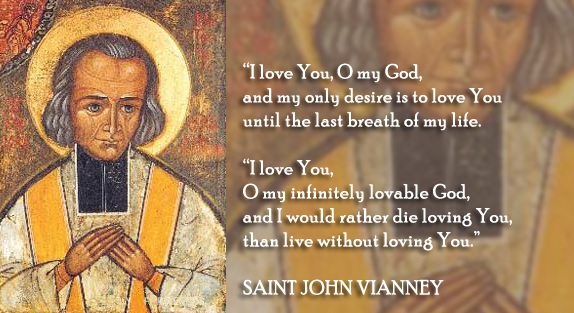
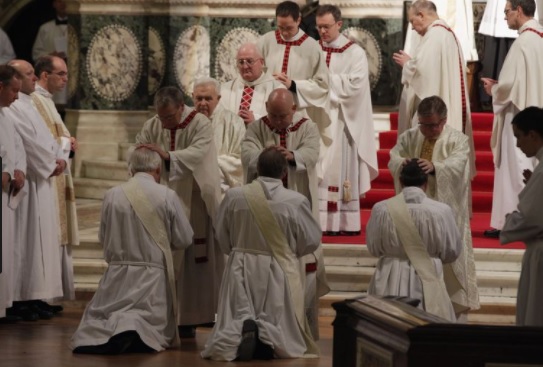
Priests Serve God and Others Through
Offering pastoral care – visiting the sick and troubled, counselling individuals, married couples or families, animating parish projects and activities.
Proclaiming God’s word – through the witness of our lives and through homilies founded on daily reflection and prayer.
Ministering the Sacraments – celebrating Eucharist and baptism, witnessing marriages, leading funerals, and bringing God’s healing presence to people through the Sacraments of Penance (Confession) and the Anointing of the Sick.
